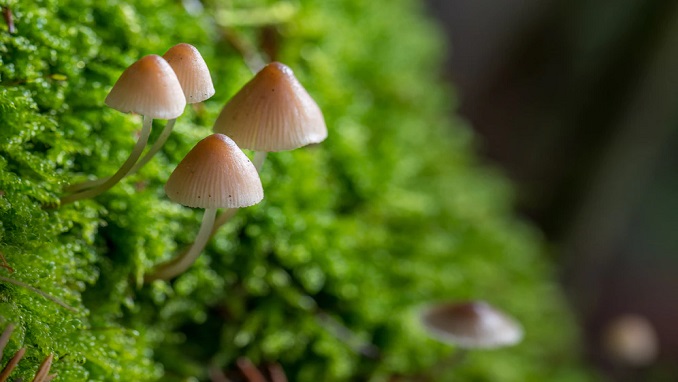A new study led by New York University Grossman School of Medicine shows that psilocybin, a compound found in so-called “magic mushrooms,” “produces robust decreases in the percentage of heavy drinking when combined with psychotherapy,” says the press release from NYU Langone.
Psilocybin is a naturally occurring compound derived from Psilocybe semilanceata – commonly known as the liberty cap – which has mind-altering qualities similar to LSD and mescaline.
According to the authors, the study published in JAMA Psychiatry “is the first placebo-controlled trial to explore psilocybin as a treatment for excessive alcohol consumption.”
In a double-blind, randomized clinical trial, 93 participants “were offered 12 weeks of manualized psychotherapy and were randomly assigned to receive psilocybin vs. diphenhydramine during two day-long medication sessions at weeks 4 and 8.”
They were later asked to report the percentage of heavy drinking days they experienced during weeks 5 to 36 of the study and to “provide hair and fingernail samples to confirm that they had not been drinking.”
Participants that were given psilocybin “reduced heavy drinking by 83 percent relative to their drinking before the study” within an 8-month period from the start of their treatment, said the press release, and almost half (48%) of them “stopped drinking altogether.”
Participants “who had received antihistamine reduced their drinking by 51 percent” and 24 percent of them stopped drinking altogether.
“Our findings strongly suggest that psilocybin therapy is a promising means of treating alcohol use disorder, a complex disease that has proven notoriously difficult to manage,” says study senior author and psychiatrist Michael P. Bogenschutz, MD, Director of NYU Langone’s Center for Psychedelic Medicine.
Cautioning that more work needs to be done “to clarify appropriate dosing before the drug is ready for widespread clinical use,” he announced the research team’s plans for “a larger, multicenter trial under the Food and Drug Administration’s Investigational New Drug Application sponsored by B.More Inc.” to document psilocybin’s effects.

Urgent need for novel medication for addiction
Calling the study a major breakthrough, as cited by Axios, Charles Marmar, Chairman of NYU Langone’s psychiatry department, which led the study, stressed the need for “novel medications for alcohol use, for addiction generally and more broadly for the entire field of psychiatry.”
According to study investigators, “previous research had already identified psilocybin treatment as an effective means of alleviating anxiety and depression in people with the most severe forms of cancer.” Meanwhile, Dr. Bogenschutz’s earlier research suggested that “psilocybin could serve as a potential therapy for alcohol use disorder and other addictions.”
He pointed to more possible applications for mental health conditions as the research into psychedelic treatment grows. For example, “beyond alcohol use disorder, this approach may prove useful in treating other addictions such as cigarette smoking and abuse of cocaine and opioids.”
As Axios points out, “MDMA, psilocybin, and LSD – combined with psychotherapy – are being explored for treating a range of addictions and mental health disorders, including treatment-resistant depression and PTSD.”




